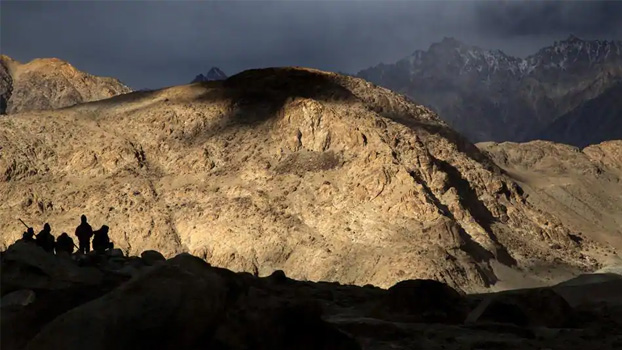India-China border clash
Let peace and stability come back once more

Tensions have risen around the subcontinent over renewed border disputes between China and India. At least 20 soldiers, including an Indian colonel, were killed or wounded and several others were missing in a border clash on the border between the two countries in Ladakh on the night of June 15.
On the other hand, 43 people were reported killed on the Chinese side. India is still embroiled in a dispute with Pakistan over Kashmir. However, both countries could not achieve anything positive from this dispute.
The root of the problem goes far back. During India's independence in 1947 and during the communist revolution in China in 1949, the border between the two countries was not three and a half thousand kilometers long as it is now. But when China occupied Tibet in 1959, the Indo-China border became longer.
At the time of independence, India had three definite boundaries – the Ratish Line with Bangladesh on the east, the Durald Line with Pakistan on the west, and the McMahon Line with China and Tibet on the north. But the Indian side complained that China did not stop there after occupying Tibet.
When the two neighboring countries return
to normalcy from the war, Bangladesh will
also breathe a sigh of relief
They took the initiative to occupy as far as Aksai in Ladakh. Three years later, in 1962, a major Indo-Chinese war broke out and this has lasted throughout these years with tensions on both sides.
Experienced quarters have commented that ethnic conflict is born out of the narrow mindedness of the political leadership. Leaders should now move away from the violent attitude of establishing their dominance in the interests of the vast majority of the people of the region.
But since then the Sino-Indian border has not been clearly defined there have been occasional disputes between the two sides, and relations have deteriorated, but in the end, war has been avoided.
China's voice is becoming a little more flexible without being particularly vocal about the border. The idea is to show respect for this flexibility and end this war for the time being.
When the two neighboring countries return to normalcy from the war, Bangladesh will also breathe a sigh of relief. We hope that in the current world reality, the two big and influential countries will realize their responsibilities and maintain peace and stability.



